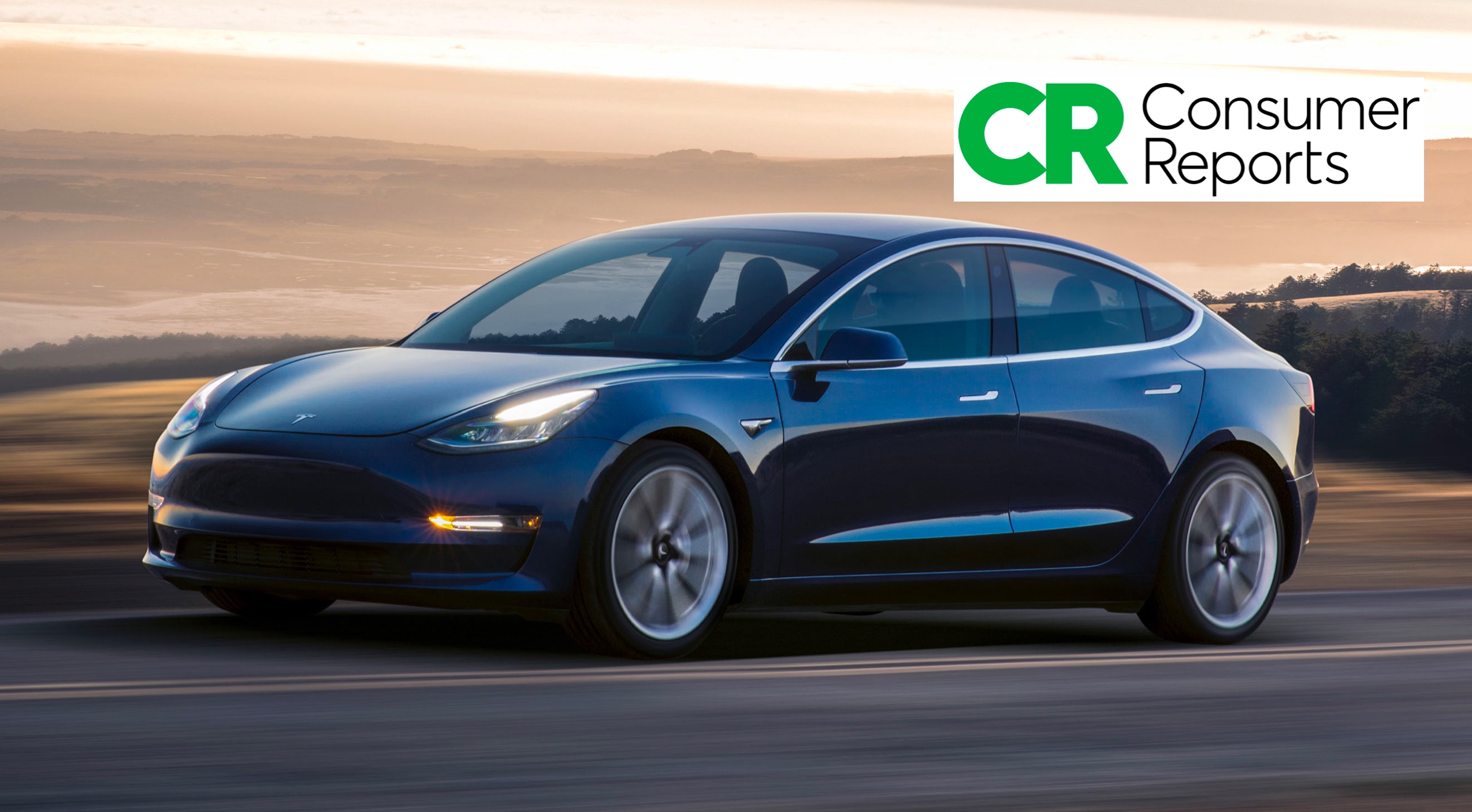
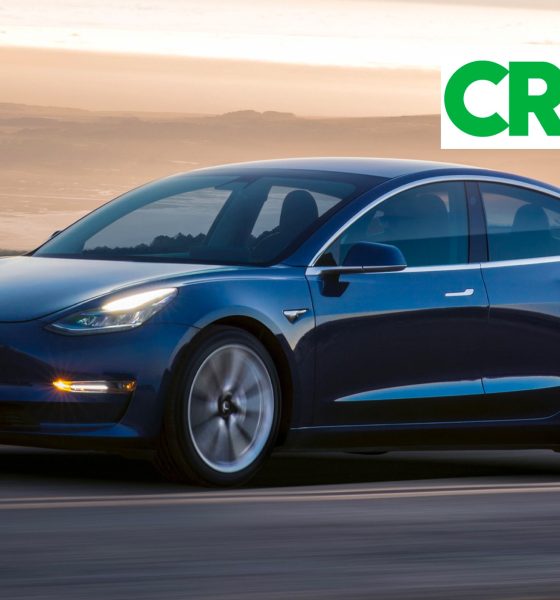
News
CR responds to Tesla over claims that its reviews are inaccurate and misleading
Consumer Reports has fired back at Tesla, issuing a statement that defends its recent report that predicts Model 3 to have “average reliability”. “Tesla appears unhappy that CR expects the new-to-market Tesla Model 3 to be of average reliability, which is generally a positive projection for any first model year of a car.” says CR in a press release sent to Teslarati.
The nonprofit organization that aims to educate consumers on the value of product, that can be anywhere from a household vacuum cleaner to an automobile, through its product testing reinforces its methodology for making predictions. “Here’s how we make the prediction” notes CR, addressing Tesla’s claim that the organization’s “automotive reporting is consistently inaccurate and misleading to consumers”.
“CR uses survey data it receives from car owners to predict the expected reliability of new cars being introduced to the market by looking across a manufacturer’s historic results (akin to how a weather forecaster predicts it will be sunny) — separate from the hands-on road tests we use for our overall score.” reads the press release.
The organization provides further reasoning for the predicted reliability rating assigned to Tesla’s latest mass market vehicle. “For the Model 3, we looked at more than 2,000 consumer survey responses about Tesla models. In fact, the Tesla Model S is now reported as having above average reliability for the first time ever. The Tesla Model S is also currently CR’s top rated car, period. (Kudos on both, Tesla!)”
We’ve provided the full press release from Consumer Reports below. Let us know what your thoughts are in the comments section.
CONSUMER REPORTS RESPONDS TO TESLA’S COMPLAINTS ON REPORTING, RESEARCH AND REVIEWS
Late yesterday, Tesla shared with select journalists what appears to have been a prepared statement of supercharged and unsupported claims about the performance and safety of their own vehicles and our 2017 Annual Reliability Survey results, taking the occasion to air a number of grievances against Consumer Reports (CR) and our overall reporting on Tesla and its products.
As is often the result of any new product or company that electrifies the market, Tesla does garner an outsized level of attention, scrutiny and discussion by the media. While we appreciate Tesla’s efforts to typically embrace and navigate, if not directly steer, this attention, we would like to offer some clarity on the examples they cite. (For other, perhaps not surprisingly Tesla-positive, examples from CR, you can visit the articles currently available at the Tesla press site, at least until they pull those links down, or visit us at CR.org).
Tesla seems to misunderstand or is conflating some of what we fundamentally do — our Annual Reliability Survey report and the related predictions versus our car reviews and tests.
First, Tesla appears unhappy that CR expects the new-to-market Tesla Model 3 to be of average reliability, which is generally a positive projection for any first model year of a car. This expectation is based on CR’s 2017 Annual Reliability Survey, measuring the dependability as opposed to the satisfaction, of more than 300 car models, model year 2000 to 2017, using the responses of individual owners of more than 640,000 vehicles. We provide this information to help people make informed purchasing decisions as new products reach the market.
Here’s how we make the prediction: CR uses survey data it receives from car owners to predict the expected reliability of new cars being introduced to the market by looking across a manufacturer’s historic results (akin to how a weather forecaster predicts it will be sunny) — separate from the hands-on road tests we use for our overall score.
For the Model 3, we looked at more than 2,000 consumer survey responses about Tesla models. In fact, the Tesla Model S is now reported as having above average reliability for the first time ever. The Tesla Model S is also currently CR’s top rated car, period. (Kudos on both, Tesla!)
Second, Tesla has taken larger issue with how CR produces car ratings, citing specific examples where they think our testing methods fell short or were unfair. CR conducts a battery of 50 standardized tests across all the vehicles we review — we have a lot of mileage in this arena. We also continuously update our ratings as new surveys are conducted and we test the cars we purchase to reflect the current realities of what a consumer should expect in the marketplace. (That’s right, purchase. CR does not accept any advertising and purchases the products we rate like any other regular person.) The Model S rating has changed over time, going up and down, as new data becomes available.
Thanks to technological advances such as product changes delivered by an over-the-air software update and thereby adding or subtracting features, we reevaluate products to inform consumers about what to expect after any update. These changes are then reflected in our ratings. Tesla frequently updates its software in just this way, which is relatively unique in the automotive market, often resulting in material changes to its products and therefore our ratings — both positively and negatively. It also happens to drive more frequent press coverage given the need to communicate product changes to consumers.
While our reliability survey data feeds into the overall score we give any product,that is just one input. As with all the cars we review, you can rest assured that we will thoroughly test and evaluate the Model 3 with the same care and scrutiny we apply to all the cars we test just as soon as we can get one — we’re waiting patiently along with other consumers.
As an independent, nonprofit organization that works side-by-side with consumers to create a fairer, safer, and healthier world, CR provides trusted knowledge people depend on to make better, more informed choices. We conduct evidence-based product testing and ratings, rigorous research, hard-hitting investigative journalism, public education, and steadfast advocacy on behalf of consumers’ interests. Buying a car that has an average or above average score for predicted reliability will likely reduce the chances of having problems with the car.
We at CR are confident in our data, methods, and reporting — and the historic results we’ve achieved in improving consumer products, services, and the marketplace. We will continue to report on and test Tesla’s products in the same fair-minded, consumer-focused way we do with all manufacturers, to help shape products to best serve the needs of consumers.

Elon Musk
Elon Musk estimates Tesla Semi could reach Europe next year
“We’ve got the Tesla Semi coming out, the heavy truck, and that’ll be going to Europe hopefully next year,” Musk said.
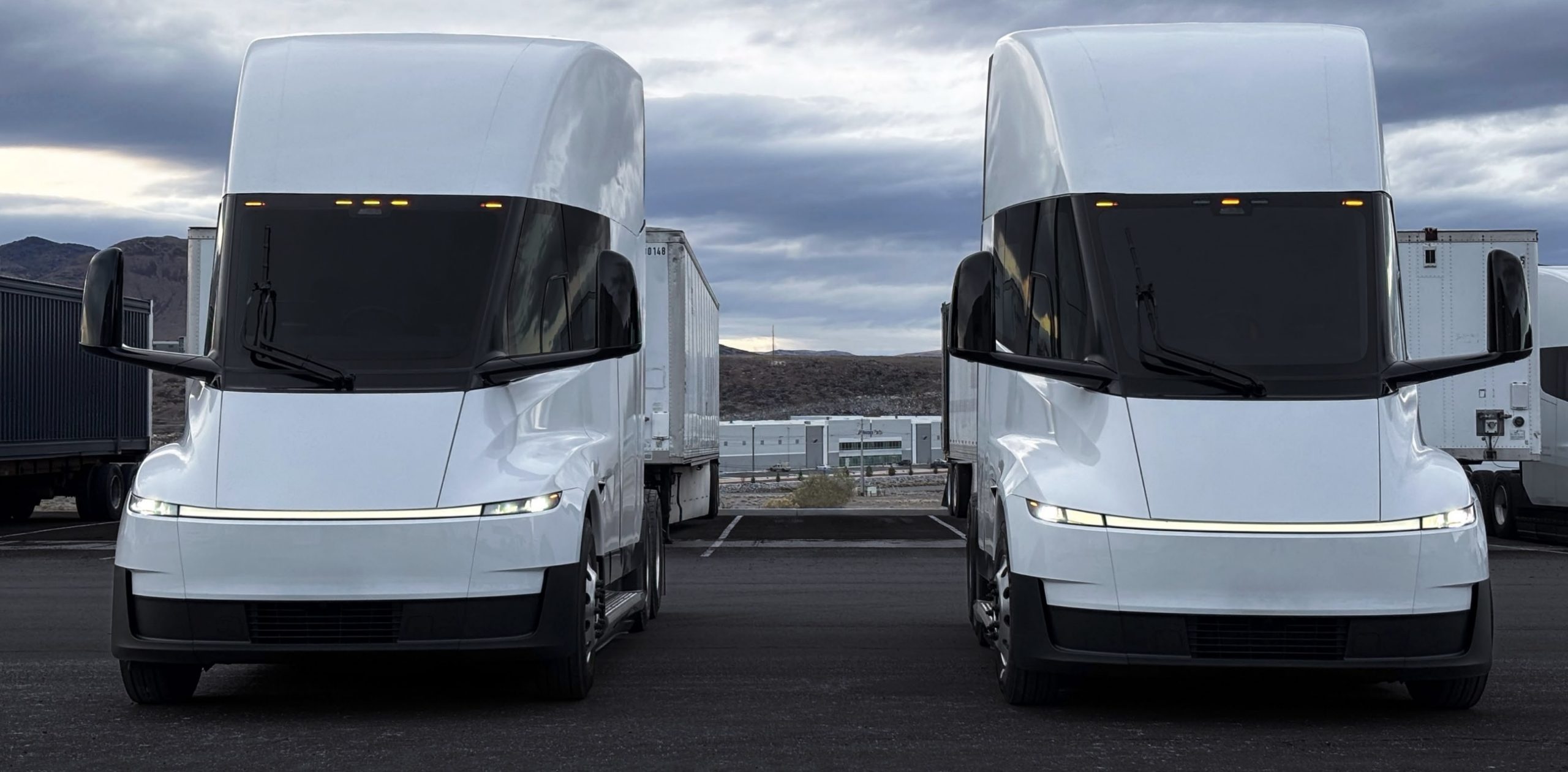
Tesla is preparing to expand its all-electric Semi truck program to Europe, with CEO Elon Musk indicating that the Class 8 vehicle could arrive in the region 2027.
Musk shared his update during an interview about Giga Berlin with plant manager André Thierig, which was posted on X by the official Tesla Manufacturing account.
“We’ve got the Tesla Semi coming out, the heavy truck, and that’ll be going to Europe hopefully next year,” he said.
Tesla has already begun limited production and customer deployments of the Tesla Semi in the United States, with the company working to scale output through the Semi factory near Giga Nevada. Considering Musk’s comments, it appears that a European rollout would be the next phase of the vehicle’s expansion beyond North America.
Musk’s use of the word “hopefully” leaves room for flexibility, but the remark signals that Europe is next in Tesla’s commercial expansion plans.
Musk has consistently argued that electrification should extend beyond passenger vehicles. During the same interview, he reiterated his view that “all ground transport should be electric,” adding that ships, and eventually aircraft, would follow.
The Semi plays a central role in that strategy. Heavy-duty freight remains one of the most emissions-intensive segments of road transport, and European regulators have increasingly pushed for lower-emission commercial fleets.
Tesla recently refreshed the Semi lineup on its official website, listing two variants: Standard and Long Range. The Standard trim offers up to 325 miles of range with an energy consumption rating of 1.7 kWh per mile, while the Long Range version provides up to 500 miles, which should be more than ample for European routes.
Elon Musk
Tesla Cybercab coming next to Giga Berlin, Optimus possibly after
“From a next major product standpoint, I think most likely is the Tesla Cybercab,” Musk said.
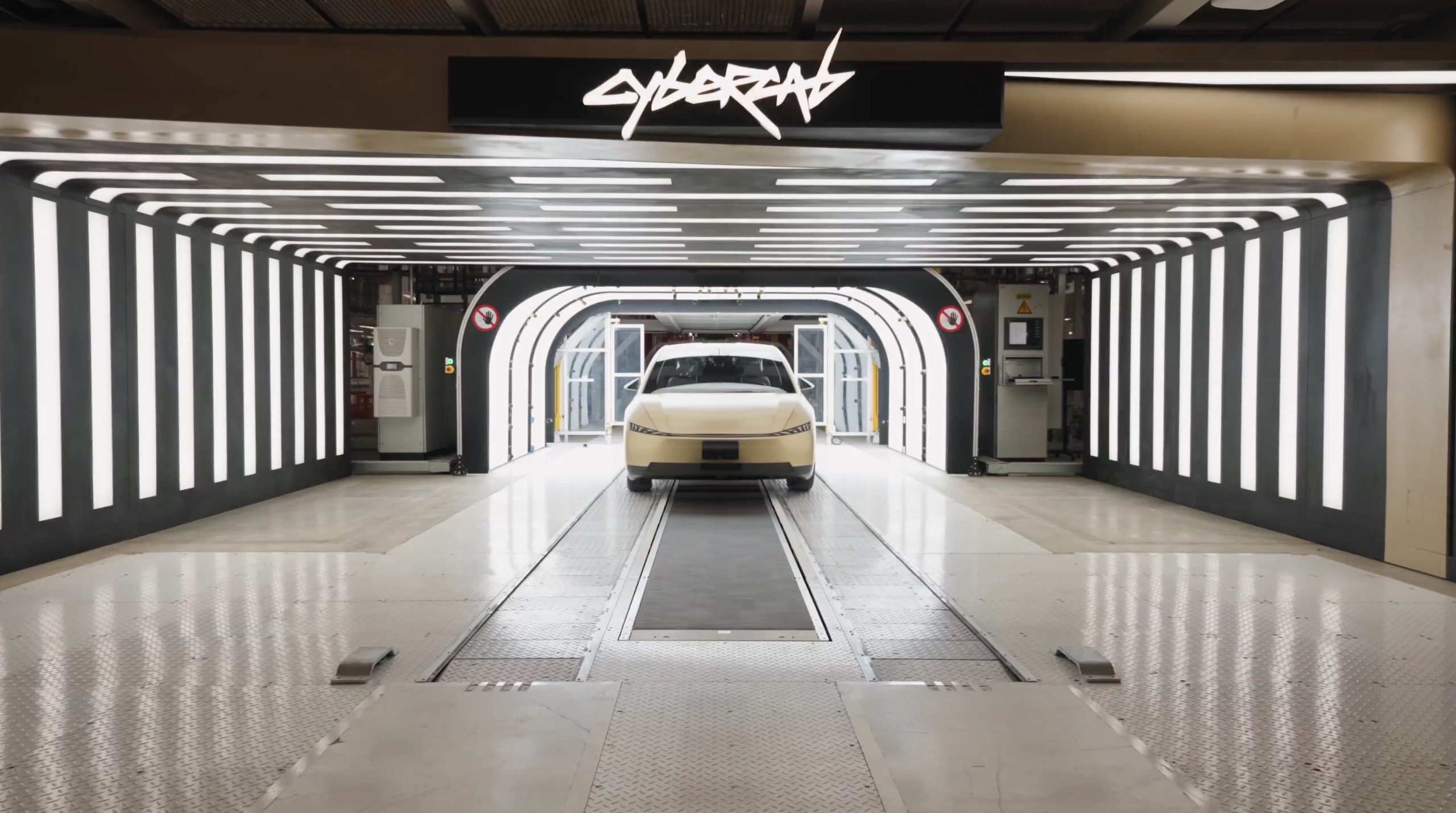
Tesla could add the Cybercab and Optimus humanoid robot to the production lineup at Giga Berlin, as per recent comments from CEO Elon Musk.
During a recent interview with Giga Berlin plant manager André Thierig, Musk identified the Cybercab as the most likely next major product for the German factory, with Optimus potentially following after.
“From a next major product standpoint, I think most likely is the Tesla Cybercab,” Musk said. He added that there are also “possibilities of Tesla Optimus” being produced in the facility.
Tesla has already begun production of the Cybercab in Giga Texas, with volume production expected to ramp this year. Based on Musk’s comments, it appears that if conditions align in Europe, Giga Berlin could eventually join that effort.
The CEO’s comments about Optimus coming to Gigafactory Berlin are quite unsurprising too considering that Musk has mentioned in the past that the humanoid robot will likely be Tesla’s highest volume product in the long run.
Giga Berlin will likely be able to produce mass volumes of Optimus, as the Model S and Model X lines being converted to an Optimus line in the Fremont Factory are already expected to produce 1 million units of the humanoid robot annually.
Apart from his comments about the Cybercab and Optimus, Elon Musk also confirmed that Giga Berlin has started ramping battery cell production and will continue expanding Model Y output, particularly as supervised Full Self-Driving (FSD) gains regulatory approvals in Europe.
Taken together, the remarks suggest Berlin’s role could evolve beyond vehicle assembly into a broader multi-product manufacturing hub, not just a regional Model Y plant.
Energy
Tesla Powerwall distribution expands in Australia
Inventory is expected to arrive in late February and official sales are expected to start mid-March 2026.
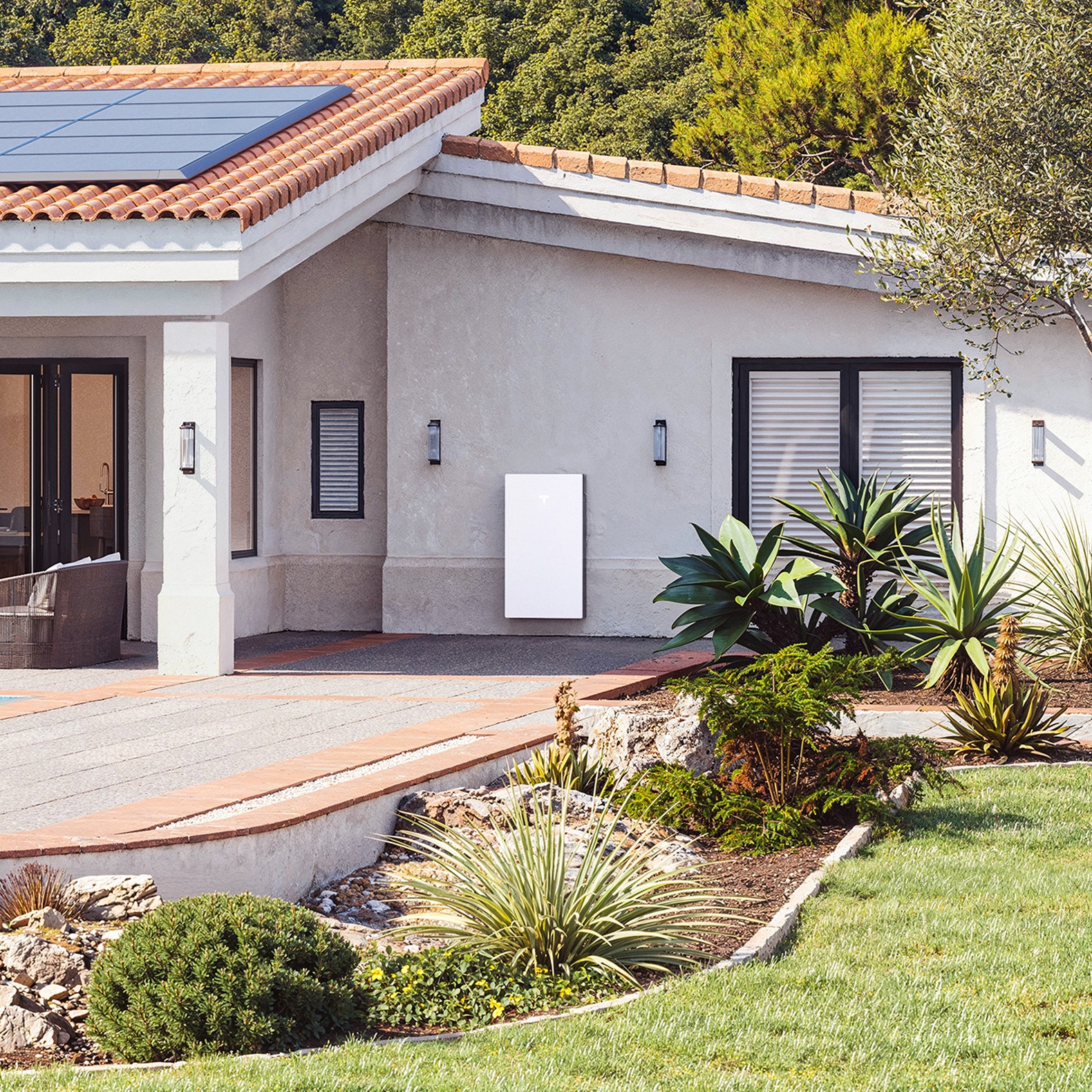
Supply Partners Group has secured a distribution agreement for the Tesla Powerwall in Australia, with inventory expected to arrive in late February and official sales beginning in mid-March 2026.
Under the new agreement, Supply Partners will distribute Tesla Powerwall units and related accessories across its national footprint, as noted in an ecogeneration report. The company said the addition strengthens its position as a distributor focused on premium, established brands.
“We are proud to officially welcome Tesla Powerwall into the Supply Partners portfolio,” Lliam Ricketts, Co-Founder and Director of Innovation at Supply Partners Group, stated.
“Tesla sets a high bar, and we’ve worked hard to earn the opportunity to represent a brand that customers actively ask for. This partnership reflects the strength of our logistics, technical services and customer experience, and it’s a win for installers who want premium options they can trust.”
Supply Partners noted that initial Tesla Powerwall stock will be warehoused locally before full commercial rollout in March. The distributor stated that the timing aligns with renewed growth momentum for the Powerwall, supported by competitive installer pricing, consumer rebates, and continued product and software updates.
“Powerwall is already a category-defining product, and what’s ahead makes it even more compelling,” Ricketts stated. “As pricing sharpens and capability expands, we see a clear runway for installers to confidently spec Powerwall for premium residential installs, backed by Supply Partners’ national distribution footprint and service model.”
Supply Partners noted that a joint go-to-market launch is planned, including Tesla-led training for its sales and technical teams to support installers during the home battery system’s domestic rollout.








